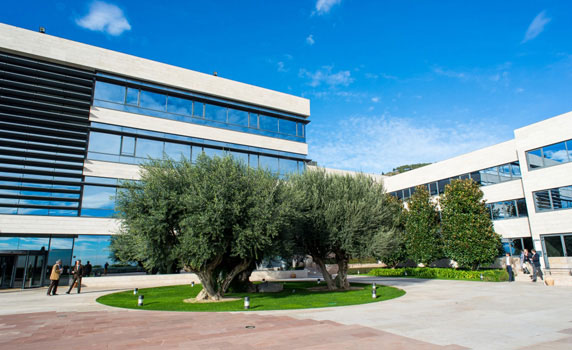
Job creation, social change, and support for entrepreneurship ... These are some of the themes of the IESE Annual Report 2013-2014, which details all of the school’s activities and includes an extensive chapter on social impact.
Throughout the last school year, IESE organized multiple activities related to social responsibility, with topics ranging from scientific research to daily business practices.
Five activities with social impact
18th International Symposium on Ethics, Business and Society (June 2014). At this event, 200 professors analyzed ethics in banking, accounting, and finance. "Dangerous companies are those that in theory are attractive to everyone but don’t manage to secure a commitment from anyone. These businesses lose their way and create serious problems. A business you can trust is one that has long-term investors," noted symposium participant Colin Mayer, professor at Saïd Business School at Oxford University. (Read news)
Global Leadership Conference on Innovation and Entrepreneurship (April 2014). Participants analyzed key factors for business growth and strategies for educating the next generation of business leaders. Participant Denise Kingsmill, IAG board member, recommended diversity on boards of directors: "Homogeneous governing boards and ‘groupthink’ have wreaked havoc on a lot of businesses. Board members should have lots of different points of view: different ways of thinking, of analyzing problems and of looking for solutions." (Read news)
Doing Good and Doing Well Conference (February 2014). 500 participants from around the world came to the Barcelona campus for this event on international corporate social responsibility organized by IESE Business School students. "Change happens because a few people decide to act," said guest speaker Jo Confino, executive editor of The Guardian newspaper. (Read news)
Speech by Unilever CEO Paul Polman (November 2013). "Businesses need to grow and create jobs, but they need to do it in a sustainable way. We should be part of the solution," asserted Unilever CEO Paul Polman in a speech titled "Leadership in a Turbulent and Global World." Polman also noted that, although public confidence in business and government is low, people expect business to be part of the solution: "Companies should take the initiative and stop waiting for government to take the first step." (Read news)
New research chairs. The Jaime Grego Chair of Healthcare Management and the Indra Chair of Digital Strategy, held by professors Núria Mas and Josep Valor, respectively, are two examples of IESE’s investment in research in the last year.
The year’s achievements
In addition to its extensive chapter on social responsibility, the annual report also notes the 50th anniversary of the Harvard-IESE Committee. This partnership has dedicated half a century to analyzing trends in business and business education. "Integrity and commitment to social change are the values that unite Harvard Business School and IESE," stated Nitin Nohria, Dean of Harvard Business School during his visit to IESE Barcelona.
Other milestones included the opening of a new campus in Munich and the launching of a New York option for the Global Executive MBA. In 2013-2014, 560 students from 60 countries enrolled on the Full-Time MBA. 80 percent of students hailed from outside of Spain. More than 10,000 people participated in Executive Education programs.
IESE professors published 108 new business cases. 247 continuing education classes were held in 46 cities in 30 countries, with 29,406 participants.
Click here to see the IESE Annual Report 2013-2014